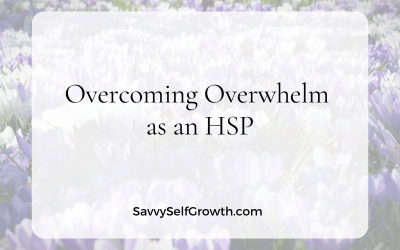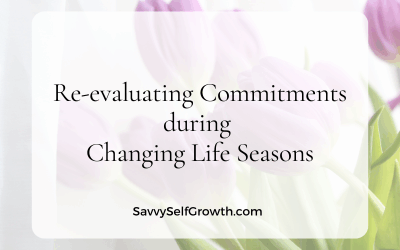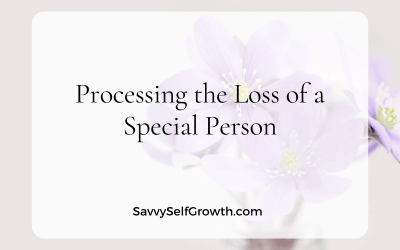 Do you recognize this situation?
Do you recognize this situation?
I got up early because today (like every other day) I have so much on my plate. I have a few emails to reply to, (a lot, actually, because I’m behind), I need to write an article, create a newsletter, write up Module 1 of my new course, go to gym, make a few phone calls, have a client at 3pm. And oh yes, I’m my own boss so I want to work in a few minutes of “me-time”, too.
That was 6.30 am.
By 10 am, I’ve downloaded my emails, replied to a few old ones (and now there are 20 new ones to reply to or prioritize), and looked at Facebook because I felt too overwhelmed to start with the emails. I stared at my long to-do list, couldn’t decide where to start first, more emails came into my inbox, spent time on Facebook again (it’s so much easier and I don’t feel demands on me over there!), opened Word to write the article, wrote a few words and got stuck, decided to answer another few emails… and now I feel exhausted, frazzled and cross with myself for wasting time. I should’ve had something done already – but nothing is complete and I feel frustrated.
Does this happen to you, too?
I’m currently reading another fascinating book – Your Brain at Work. In the first chapter, I found a solution to getting overwhelmed and not knowing what to work on first – and then turning to something mindless and less energy-sucking.
David Rock (author) reminds us that the part of the brain called the prefrontal cortex, is the biological seat of our conscious interactions in the world. It sits just behind the forehead – and occupies only around 4-5% of the volume of the brain. It developed last in the evolution of the brain.
We use the prefrontal cortex for the tasks of understanding, deciding, recalling, memorizing and inhibiting (keeping thoughts out that we don’t want to think at this time).These conscious mental activities (meaning we have to really think consciously, it’s not an automatic behaviour like breathing, brushing teeth or driving the familiar route to work), use tremendous amounts of metabolic resources. They are energy hungry and use glucose and oxygen far faster than any other brain activity.
Dr Roy Baumeister from Florida University explained it this way: “We have a limited bucket of resources for activities like decision making and impulse control and when we use these up, we don’t have as much for the next activity.” (p 9)
The author goes into a lot more detail about how the brain works with fascinating information about other areas of the brain (like the basal ganglia) that takes over when we do tasks repeatedly.
The important learning for me was this:
Prioritizing tasks (deciding which one of on your to-do list to focus on first) involves every one of the 5 functions the conscious mind needs to handle. We’re literally “using up” the resources available to use when we prioritize. It’s one of the brain’s most energy-hungry processes!
Spending even 10 minutes on email first thing in the morning, can use up resources we need to prioritize our tasks.
That was a huge aha for me – and for the past 4 days I’ve completely switched strategies. I’m incredibly happy to say I’ve been more productive these few days than I can remember for a long time.
Here are a few tips that really work for me – from this book and other resources:
- Write down everything you can think of that you “should” be getting done on a piece of paper. Get it out of your head. As the author explains, it takes far, far more brain energy to hold all those thoughts in the brain, than to get it out of your head and free up processing power to prioritize and take action. I call this a “Brain Dump”. We take this one step further a little later in this list.
- Every evening or last thing at work, spend a few minutes to write the 6 most important tasks you want to complete the next day. Only 6, not the whole 20!
- Spend the first few minutes of the work day, when your brain is fresh and energized, to prioritize those tasks and write it down in the order you want to get them done.
- Then, get them done first. Close email, close browsers, minimize interruptions, put a notice on your door, switch phones on silent. Do what you need to do to work on those tasks.
- Take a short break at least every 40-60 minutes. Your brain needs recovery time to tackle the next think-intensive task.
- If you’re worried about the 20 things you’ve written down in the Brain Dump, spend time after you’ve had a break to prioritize and schedule them into your calendar. Remember – this is an energy-intensive activity and your brain needs plenty of glucose and oxygen to do it well. If you’re feeling drained or tired when attempting this task, you’ll find it takes far, far longer than you’d expect and you might agonize over decisions. Give yourself the very best chance at succeeding by doing this mental gymnastics when you’re fresh!
I can honestly say that for the past 4 days, as I’ve implemented this, I am amazed at how accomplished, happy, grateful and on top of the world I feel by 10 am!
Here’s another tip for new habits
If you find yourself backsliding into an old habit (like say checking emails or Facebook when you wanted to do a prioritized task), learn to say “I don’t check emails before 10 am.” Or “I don’t check Facebook before 9 am”.
If you listen to your own self-talk, you’ll notice that you often say things you don’t like or don’t do. “I don’t drink tea.” Or “I don’t spend money on that.” We might as well use this form of self-talk to encourage ourselves to drop old habits. It works for the things we’re already not doing, why not use this way of self-talk for forming new habits?
I’d love to hear your comments and questions below! Where do you need to be more efficient with your amazing brain power?



